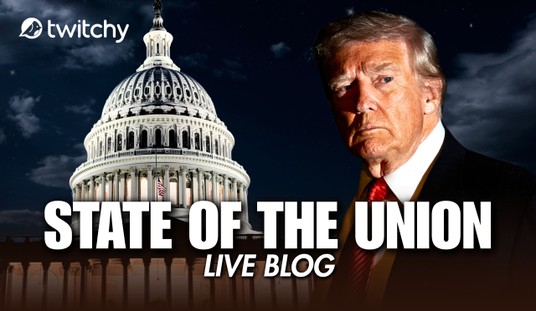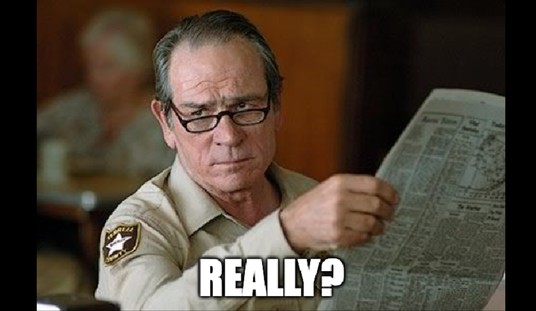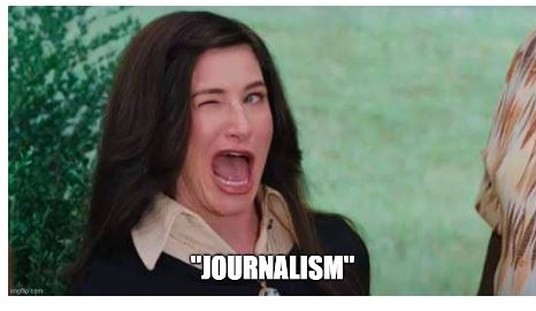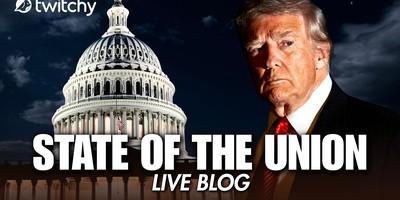The Nation’s Elie Mystal sat down with MSNBC’s Mehdi Hasan last night to explain the *real* reason the Founders added the 2nd Amendment to the Constitution, adding a premeditated attack on Tucker Carlson for good measure:
I'm going to be on with @mehdirhasan tonight about either interpreting the Second Amendment correctly or just repealing it. Watch at 8:00 instead of just waiting for Tucker to clip it and take it out of context.
— Elie Mystal (@ElieNYC) June 1, 2022
And, as you might expect, he argued that the main reason for the 2nd Amendment was to “preserve white supremacy and slavery”:
An individual right to self-defense with a gun isn’t actually provided by the Second Amendment, @ElieNYC argues. Its original purpose was to preserve white supremacy and slavery. You’re going to want to hear him explain it: pic.twitter.com/7yv7JnRHoQ
— The Mehdi Hasan Show (@MehdiHasanShow) June 2, 2022
Sigh. This comes up all the time but no matter how many times libs claim this, it doesn’t make it true:
No, that’s not accurate.
— Max+ (@MaxNordau) June 2, 2022
Here’s law professor Jonathan Turley with the ‘splainer:
“The suggestion that slavery was a primary motivation for the 2nd Amendment is utter nonsense. States opposed to slavery, like Vermont, Pennsylvania, New Hampshire, New York and Rhode Island had precursor state provisions recognizing the right to bear arms.”
The suggestion that slavery was a primary motivation for the 2nd Amendment is utter nonsense. States opposed to slavery, like Vermont, Pennsylvania, New Hampshire, New York and Rhode Island had precursor state provisions recognizing the right to bear arms. https://t.co/N1skxblaeh
— Jonathan Turley (@JonathanTurley) July 28, 2021
And the point of linking it to slavery is to shut down debate:
“Critics can dispense with such long-standing arguments by claiming the amendment is a relic of slavery and a tool of racism. That instantly converts any 2nd Amendment defenders into advocates of anti-blackness and oppression. It simplifies the argument and silences opposing views.”
Critics can dispense with such long-standing arguments by claiming the amendment is a relic of slavery and a tool of racism. That instantly converts any 2nd Amendment defenders into advocates of anti-blackness and oppression. It simplifies the argument and silences opposing views
— Jonathan Turley (@JonathanTurley) July 28, 2021
The good news is that not a lot of people watched it:
It's fun to watch @mehdirhasan and @ElieNYC prove that they haven't the faintest clue what they are talking about… https://t.co/Brq11kXUMk
— Pradheep J. Shanker (@Neoavatara) June 2, 2022
And if you’re a lib reading this and don’t believe Professor Turley, might we interest you in a book review in the New York Times on this very subject?
NYT book review on this subject.https://t.co/ieCuskzBPu
"She argues unconvincingly, in the face of formidable scholarship to the contrary, that the aim to protect slavery was the predominant motive behind the Second Amendment." https://t.co/rvcJDePkks
— Greg Pollowitz (@GPollowitz) June 2, 2022
From the NYT review of, “THE SECOND — Race and Guns in a Fatally Unequal America” by Carol Anderson (emphasis ours):
Anderson’s account, however, is wanting in important respects. She argues unconvincingly, in the face of formidable scholarship to the contrary, that the aim to protect slavery was the predominant motive behind the Second Amendment. She writes that the Second Amendment was “the result of [James] Madison’s determination to salve Patrick Henry’s obsession about Virginia’s vulnerability to slave revolts, seduce enough anti-Federalists to get the Constitution ratified and stifle the demonstrated willingness of the South to scuttle the United States if slavery were not protected.” The Second Amendment, she claims, “came into being … steeped in anti-Blackness, swaddled in the desire to keep African-descended people rightless and powerless, and as yet another bone tossed to keep the South mollified and willing to stay aligned with the grand experiment of the United States of America.”
Because the centrality of racism to American history has often been obscured, revisions adding racial realism are urgently needed. Racism, however, for all its importance, is not the only major influence in the country’s affairs. Akhil Reed Amar’s careful explanation of the debate over the Second Amendment in “The Bill of Rights: Creation and Reconstruction” (1998) points to considerations that Anderson notably slights, particularly “deep anxiety about a potentially abusive federal military.” Anderson does not ignore altogether such concerns. She alludes to “the anti-Federalists’ heightened fear of a strong central government” as a factor in their calculations. But in her telling, dread of Blacks was the essential, overriding cause of the Second Amendment, an entitlement “rooted in fear of Black people, to deny them their rights, to keep them from tasting liberty.” Such claims significantly overstate the role of race in the amendment’s development.
And there you have it.
***
























Join the conversation as a VIP Member